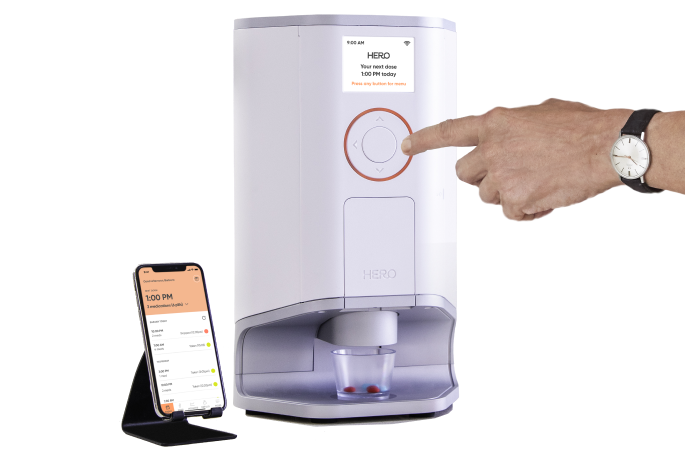Alternatives to Assisted Living: Staying Independent at Home

For many of us, home is much more than just a place to live. It’s a space filled with memories, familiar comforts, and a cherished sense of independence. The thought of leaving that behind as we get older can be difficult to face.
The good news is that the choice is no longer just between staying home without support or moving to an assisted living community. The desire for "aging in place", living safely and comfortably in your own home as you age, is more achievable than ever.
Thanks to a growing number of services and smart technologies, many practical and effective alternatives are available. This guide will walk you through the options that can help you or your loved one continue to stay at home independent, right where you belong.
What is Aging in Place, and Why is it So Important?
The term “aging in place” simply means choosing to remain in your own home as you get older, rather than moving to an assisted living community. It’s a choice that balances cherished independence with the right level of support.
The reasons so many older adults prefer to stay home are deeply personal and powerful.
The Unmatched Comfort of Home
There's a powerful sense of well-being that comes from being in your own space. It’s the comfort of your favorite chair, the connection to your neighbors, and the rhythm of routines you’ve built over years. This familiarity is incredibly grounding and beneficial for both mental and emotional health.
Holding onto Independence
Living at home means you remain in control of your daily life. From deciding what to eat for breakfast to setting your own social schedule, this autonomy is central to dignity and self-esteem. It’s about living life on your own terms.
A More Flexible Financial Approach
While every situation is different, in-home support can often be more flexible and affordable than the all-inclusive cost of a residential facility. By choosing services as you need them, you can build a plan that fits your budget and addresses only specific challenges.
A successful aging-in-place plan comes down to thoughtful preparation, ensuring a safe living environment, strong social connections, and reliable support for health and daily activities.
Finding the Right In-Home Support
Navigating the world of in-home support can be confusing. Let's break down the main options to help you find the right fit for you or your loved one.
Companion and Personal Care (Home Care)
This type of support is non-medical and focuses on making daily life safer and more enjoyable. A professional home care aide can help with activities like bathing, dressing, cooking, and light housekeeping. They also provide transportation and vital companionship to combat loneliness.
A key point for families to know is that home care aides can give medication reminders, but they are not licensed to handle or dispense medications. This often leaves an important gap in a loved one's care plan.
Skilled Medical Support (Home Health Care)
When medical needs are more complex, home health care brings licensed professionals, like a nurse or physical therapist, to your door. Prescribed by a doctor, this care can include wound treatment, therapy, or direct medication management and administration. It's often used during recovery from an illness or surgery.
Community and Local Services
Building a strong support system can also include leaning on local resources. Look for programs like Meals on Wheels for meal delivery, senior transportation services, or adult day programs that offer a safe and social environment.
How Technology Creates a Safer Life at Home
Technology has become a powerful partner in making home a safer and more comfortable place to age. These modern tools offer peace of mind for both older adults and their families, providing support exactly when and where it's needed.
Tools for Safety, Connection, and Health
Many families already use technology that makes a real difference.
- Medical alert systems with fall detection can summon help in an emergency, providing a vital safety net.
- Smart home devices make it easy to control lights, lock doors, or call family with a simple voice command.
- Telehealth services offer convenient access to doctors without having to leave home.
Closing the Gap in Medication Management
Perhaps the biggest challenge technology can solve is the one we mentioned earlier: managing medications safely and reliably. This is where smart solutions, part of a healthcare approach called Remote Therapeutic Monitoring (RTM), can be truly life-changing.
RTM technology allows a doctor or care team to support a person's health from afar by seeing how they are sticking to their prescribed therapy, like a medication plan. This modern approach can lead to fewer trips to the doctor and provides peace of mind for the whole family.
For the daily challenge of a complex schedule, even more support is needed. While simple alarms can offer reminders, a dedicated system that sorts, dispenses, and tracks medications automatically is what truly makes a difference. This provides much needed relief from the constant demands of a complex routine.
How Hero Fills the Medication Management Gap
Solving the medication worry is the key to thriving at home. That’s precisely what Hero’s complete service is designed to do, giving both Hero members and their families our core promise: one less thing to worry about.
The Hero service provides a complete circle of support through its three core components:
- Our award-winning smart dispenser, which automatically sorts and dispenses the correct doses at the right time.
- The connected Hero app, which allows members and their loved ones to track adherence and receive real-time alerts if a dose is missed.
- 24/7 live support, so help from a real person is always just a tap away.
This system is also a key enabler of Remote Therapeutic Monitoring (RTM), as it automatically collects the adherence data that helps healthcare providers deliver better care. With Hero, an older adult can manage their medication with confidence and dignity, maintaining their autonomy while the whole family feels secure. It makes aging in place safer and easier than ever before.
Financing Your In-Home Support Plan
Understanding the financial side of in-home support is an important step. Costs and coverage can vary widely, so let's walk through the most common options.
Understanding Medicare Coverage
Medicare's rules for home care can be complex. Generally, it may cover short-term, skilled home health care when prescribed by a doctor, but it typically does not pay for non-medical home care (like help with daily chores).1 The specifics can also depend on whether you have Original Medicare or a Medicare Advantage plan, as each has different rules.
This brings up an important question: Is the Hero service covered?
While a direct subscription to Hero is not covered by Medicare, you may be able to get our service at a reduced or even no cost. This is possible if your healthcare provider offers a Remote Therapeutic Monitoring (RTM) program that includes a Hero device, subject to your plan's copays and deductibles.
To see if you're eligible, you can visit Hero’s online provider directory and find a healthcare provider that serves your area.
Other Ways to Fund In-Home Care
Beyond Medicare, many families use other resources to pay for the support they need. These often include long-term care insurance policies, benefits available to veterans, or private funds.2
You Don’t Have to Do It Alone
Choosing to age in place doesn’t mean you have to handle everything by yourself. In fact, it works best with a team approach, where family, in-home support, and healthcare providers work together. Smart technology like Hero acts as a key player on that team, connecting everyone and providing a reliable safety net.
By combining the right personal care with the right technology, you can create a support system that makes home the best and safest place to be. It’s about designing a lifestyle where you or your loved one can stay independent and active, while knowing help is always just a call, or a tap away.
The Right Choice for Your Family
Ultimately, choosing the right mix of support is a personal decision. It begins with an open and honest conversation with your loved ones about needs, wants, and concerns. From there, you can build a personalized plan that combines the right people with the right technology, ensuring home remains the best place to be, both safely and independently.
References:
1. Medicare - Home health services https://www.medicare.gov/coverage/home-health-services
2. U.S. Department of Veterans Affairs - Geriatrics and Extended Care https://www.va.gov/geriatrics/pages/Personal_Contributions_And_Long_Term_Care_Insurance.asp
Complex med schedule? We solved it.
Hero’s smart dispenser reminds you to take your meds and dispenses the right dose, at the right time.

The contents of the above article are for informational and educational purposes only. The article is not intended to be a substitute for professional medical advice, diagnosis, or treatment. Always seek the advice of your physician or other qualified clinician with any questions you may have regarding a medical condition or its treatment and do not disregard professional medical advice or delay seeking it because of information published by us. Hero is indicated for medication dispensing for general use and not for patients with any specific disease or condition. Any reference to specific conditions are for informational purposes only and are not indications for use of the device.

